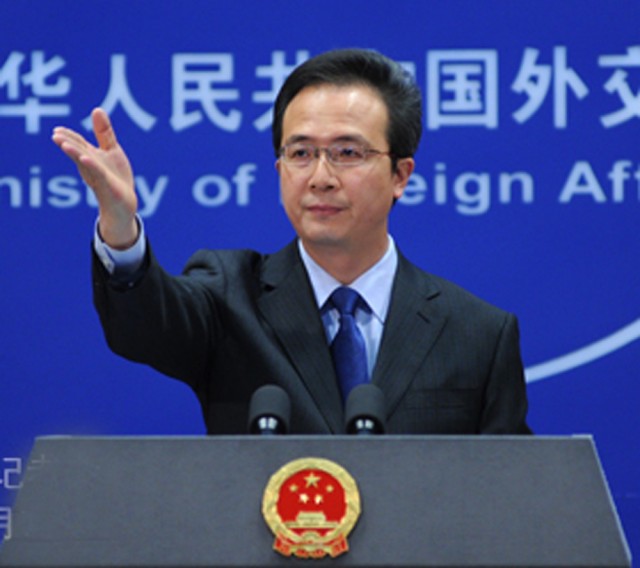The Chinese government has rejected accusations by the Burmese military that it is involved in assisting Kokang rebels or that it allows them to stage operations from Chinese soil.
“China has always upheld a principle of non-interference in internal affairs of other countries, has always respected Myanmar’s sovereignty and territorial integrity,” Chinese Foreign Ministry spokesman Hong Lei told reporters at a regular briefing in Beijing. “[China] would not allow any organisations or individuals to use China’s territory to take actions that damage the China-Myanmar relationship and the stability along the border area of China and Myanmar.”
Hong was speaking after Burmese military spokesmen, at a press conference in Naypyidaw on 21 February, claimed that former soldiers of China’s People’s Liberation Army were fighting alongside and providing logistical support to the Myanmar Nationalities Democratic Alliance Army (MNDAA), a faction of Kokang units loyal to former chairman Peng Jiasheng [also written Pheung Kya-shin], who has lived in exile in China for some five years. Peng Jiasheng is alleged to have returned to the fold by launching surprise attacks on Burmese army positions in and around Laogai [Laukkai] beginning on 9 February.
Hong declined to respond to a question about whether Peng had been in China before the latest clashes broke out.
[related]
Speaking on Tuesday to the Global Times, an influential Chinese tabloid published by the state media People’s Daily, Peng Jiasheng also denied the claims that the Kokang rebels were receiving support from China.
“We would not accept Chinese citizens participating in armed action, as this would only be harmful to us,” he said.
China’s Phoenix TV reported on Wednesday that Gen. Fang Fenghui, the PLA’s chief of general staff, had arrived in Yunnan. However it was not clarified whether his visit is connected in any way to the ongoing conflict across the border in the Kokang region of northeastern Shan State.
The MNDAA emerged from the remnants of the Communist Party of Burma, a Chinese-backed guerrilla force that battled the Burmese army before splitting off in 1989.



